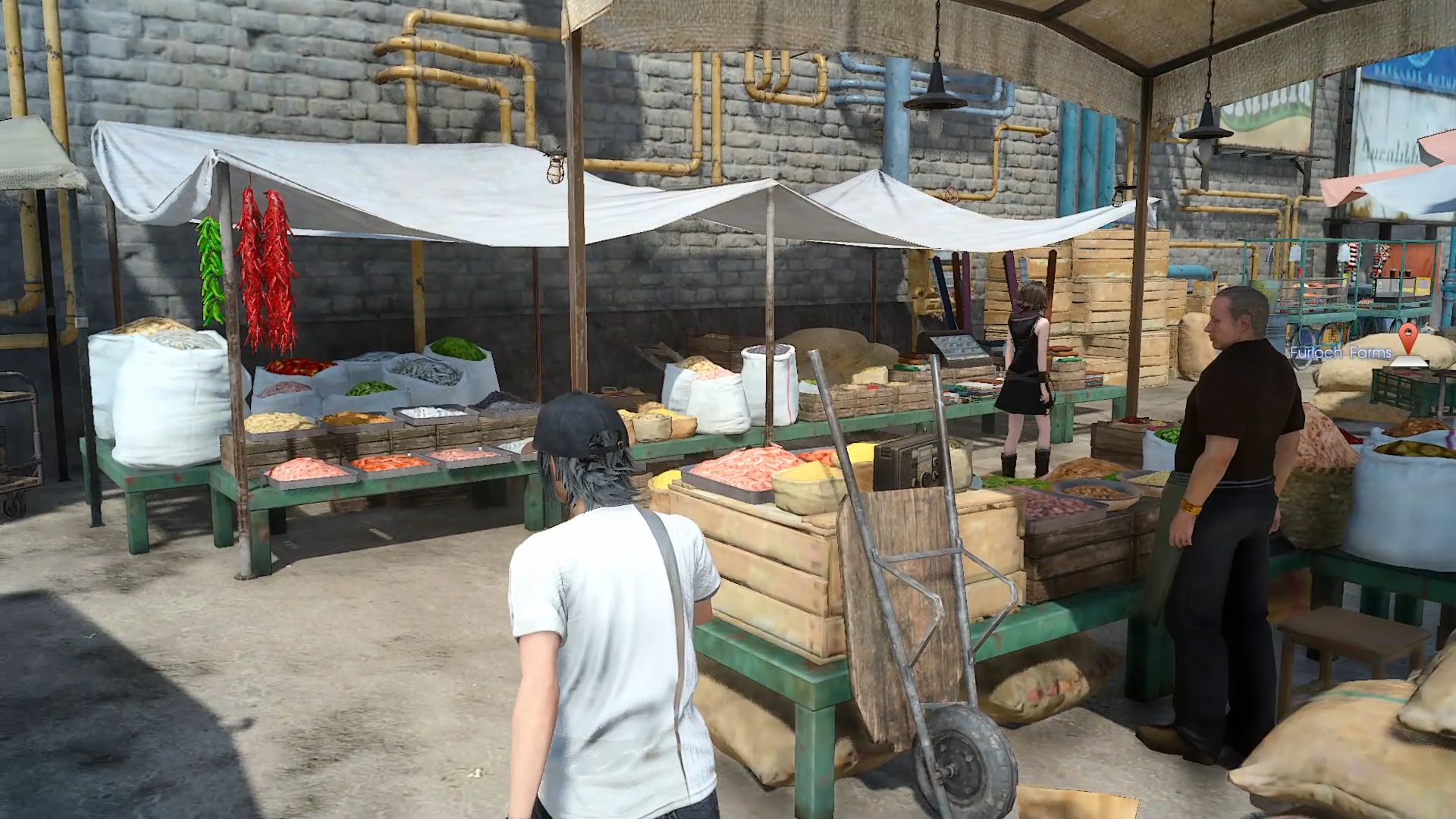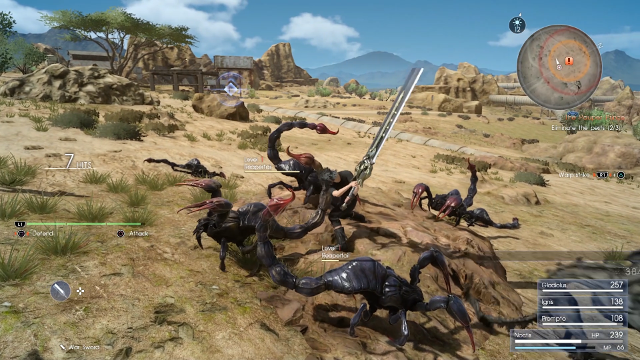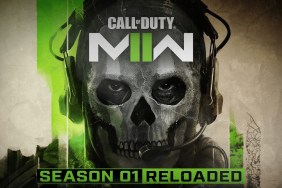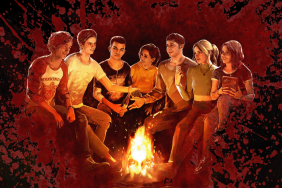It’s been almost 30 years since the first Final Fantasy released. Although there are now 15 mainline releases in the series, one thing Square Enix has never done is stick to a script. While you might find Chocobos, beauty, and Ifrit in each of its worlds, they always find a way to present adventures that are distinct from one another.
Final Fantasy XV has arrived, and provides yet another example of how Final Fantasy makes an effort to take risks. While that doesn’t mean that it’s everything it wants to be, it manages to be delightfully surprising.
The 15th Chapter Unfolds
This isn’t a traditional Final Fantasy story, neither in the post-industrial science fiction style of most games in the series, nor a fantasy tale like Final Fantasy IX. Instead, Final Fantasy XV has reached outward to present its interpretation of a single-player open-world RPG. This has resulted in it having much more in common with games like Dragon Age: Inquisition or even The Elder Scrolls V: Skyrim than anything bearing the Final Fantasy name has offered before. This in and of itself is a great change of pace for the franchise.
Final Fantasy XV starts off without a hook, relying on the impressiveness of its open-world to draw players in as its easy-going introductory hours unfold. It isn’t until you’ve made some progress that something as fundamentally important as an antagonist is introduced. And when this happens, it’s anti-climactic due to the disinteresting nature of the characters; charisma is almost nowhere to be found. This low prioritization of compelling plot elements is a theme for much of the game, although it’s muffled somewhat by the strength of the presentation.
This is a brotherly tale featuring four aspiring heroes, including Noctis Lucis Caelum, Gladiolus Amicitia, Ignis Scientia, and Prompto Argentum. While all four of these characters express themselves very differently, they have come together under the common goal of pursuing the greater good as they interpret it. The large variance of personality means that everyone will find their preferred character even if they aren’t all that interesting to begin with. At the very least they are visually well represented.
It was predictable that the story would take a hit from Final Fantasy’s shift to an open-world. What’s here is most worried about presenting variety and exploration than anything else, and is delivered without great deliberation. It is inconsistent in its enchantment of players, containing an even mix of boring story sequences and thrilling climactic moments. You might find yourself skipping dialog at some point, and even then you could end up staying that you thoroughly enjoy the game.
Freedom Fighters
Without a captivating story to lean on, it was incredibly important that Final Fantasy XV executed well on gameplay. And so it did. What Square Enix has engineered is something that benefits from many positive qualities: it’s exciting, offers diversity, takes time to master, and can be strategic.
The best way to think of it is Kingdom Hearts meets Dissidia. You control Noctis, equipped with up to four separate weapons ranging from daggers to a greatsword and even magical spells. You can move quickly across the battlefield, engaging with enemies and reacting to their attacks with blocks. Enemies range from slow yet hard hitting to fast and predatory. Timing your offensive strikes is of utmost importance as it leaves you vulnerable as you open up your posture and expose your vitals. Its fast-paced nature will test your hand dexterity in a way that isn't commonly seen with RPGs.
Strategy comes in several forms, including how and when you execute techniques. These are high value maneuvers that involve two or more party members, and are available infrequently. You’ll soon come to learn that they fundamentally serve as the summons of the game, as Final Fantasy XV’s Astrals have such steep requirements that they are unusable in most situations. There are many techniques to learn and equip, made possible by a well composed skill unlock system that makes character progression one of the game's greatest assets.
What’s here works particularly well within the context of an open-world game. There are no random battles that transition you from the world into a battle space. Instead, you can see enemies out in the open similar to Final Fantasy XII. Only, this time around combat is action-packed, coming in close proximity to technically being an action RPG. It is tough, but there are ways to tone the difficulty down including a Wait Mode that turns the game into hybrid battle system that is preferable for some players.
The entertainment of combat is accompanied by a wide variety of secondary activities. You can go fishing, race Chocobos, cook food, take photos, modify your car, and more. These go a long way toward ensuring that you never become completely reliant on the combat to derive satisfaction. As appealing as these activities are, you'll likely spend the bulk of your time venturing to new areas and finding an excuse to head into battle.
A Joyride To Eos
Set on the Earth-like planet Eos, Final Fantasy XV is a game that encourages exploration successfully. The world is large with diverse climates, peppered with treasure to make you think twice about taking the quickest route to your destination.
The world is so large that you’re provided means of travel early on, including a car. At times it feels like you’re on a roadtrip with your boys as you tour from one town to the next. Travel actually takes time, and there are systems in place that enforce the idea that Eos is a large place. Later on you can even fly high above the ground, replicating the memorable airship moments of classic Final Fantasy games. This, in addition to a presence of many traditional Final Fantasy themes, ensures fans of the franchise are rewarded for their investment.
Despite this grandness, Final Fantasy XV is a beautiful game. You can see mountains rendered far in the distance with wonderful landmarks surrounding them. These become great backgrounds for character interactions, featuring the most detailed characters ever seen in a Final Fantasy. The presentation is nearly flawless, hindered by performance issues including frame pacing. These performance issues are rarely an issue during moments of battle, but do make the vast world a little less enjoyable to take in.
When all is said and done, Noctis and the gang are likely to spend 30 to 40 hours exploring Eos. This is a short game in the context of Final Fantasy, but it uses its time very wisely. You spend less time watching cutscenes, and more on the activities that define the experience in a positive manner. With this in mind, it's safe to say that the play value here is well above what most modern games offer.
Conclusion
What Final Fantasy XV succeeds at more than anything is providing an unpredictable and memorable adventure. Captivating story and characters were sacrificed along the way, but more than anything this game needed to prove that Final Fantasy can still execute greatness while taking risks. Its combat system and world design carry most of the weight, supported by attractive secondary activities and a great progression system. The result is something that doesn't necessarily feel like any Final Fantasy before it, although its high production values certainly make it deserving of the name.
-
The best combat system since Final Fantasy X
-
Beautiful world and characters
-
An incredible number of things to see and do
-
An open-world worth exploring
-
Ascension skill unlock system is rewarding
-
Disinteresting characters and story
-
Disappointing performance on both platforms
Final Fantasy XV Screenshots
-
Final Fantasy XV Screenshots #1
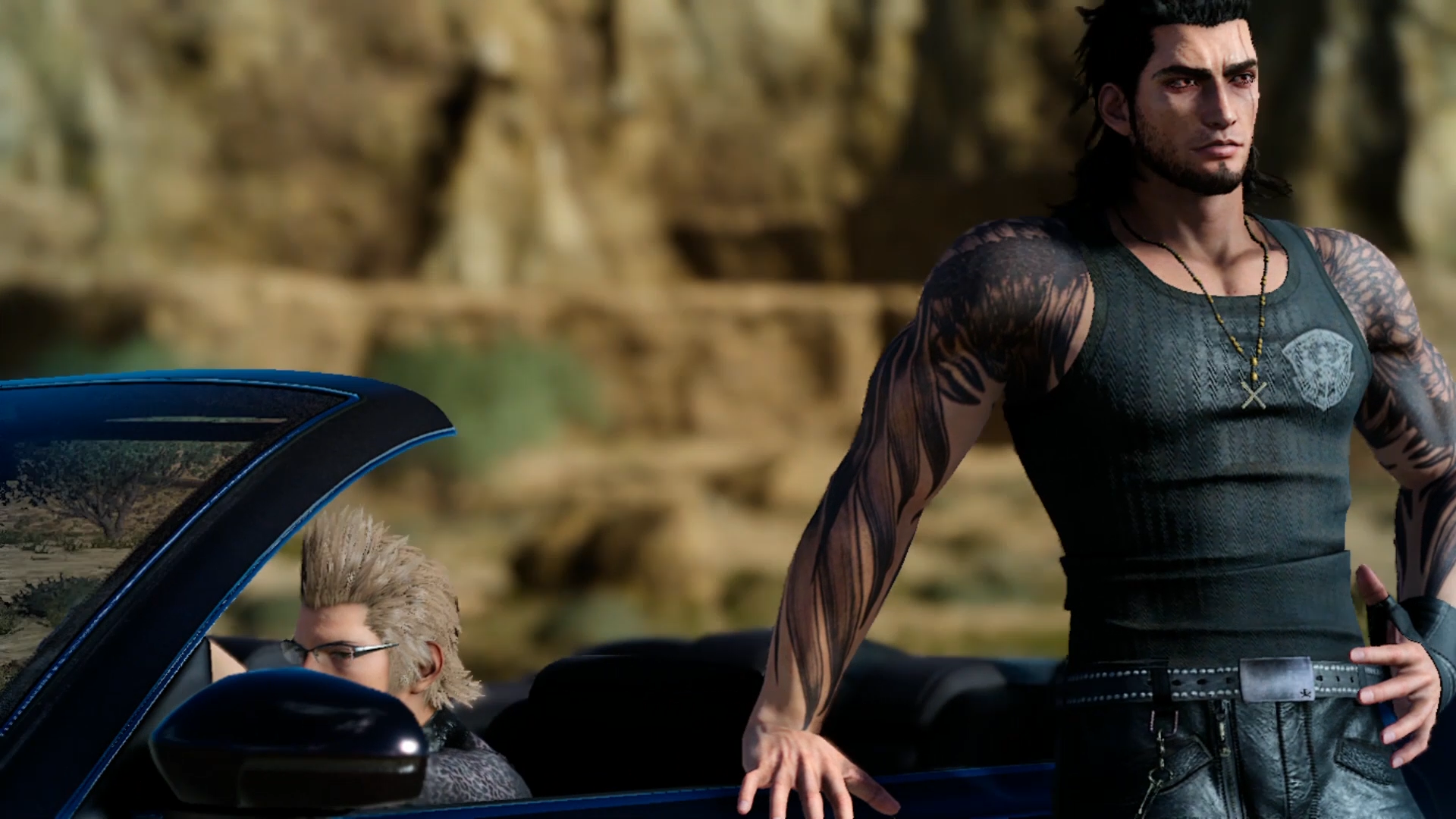
-
Final Fantasy XV Screenshots #2
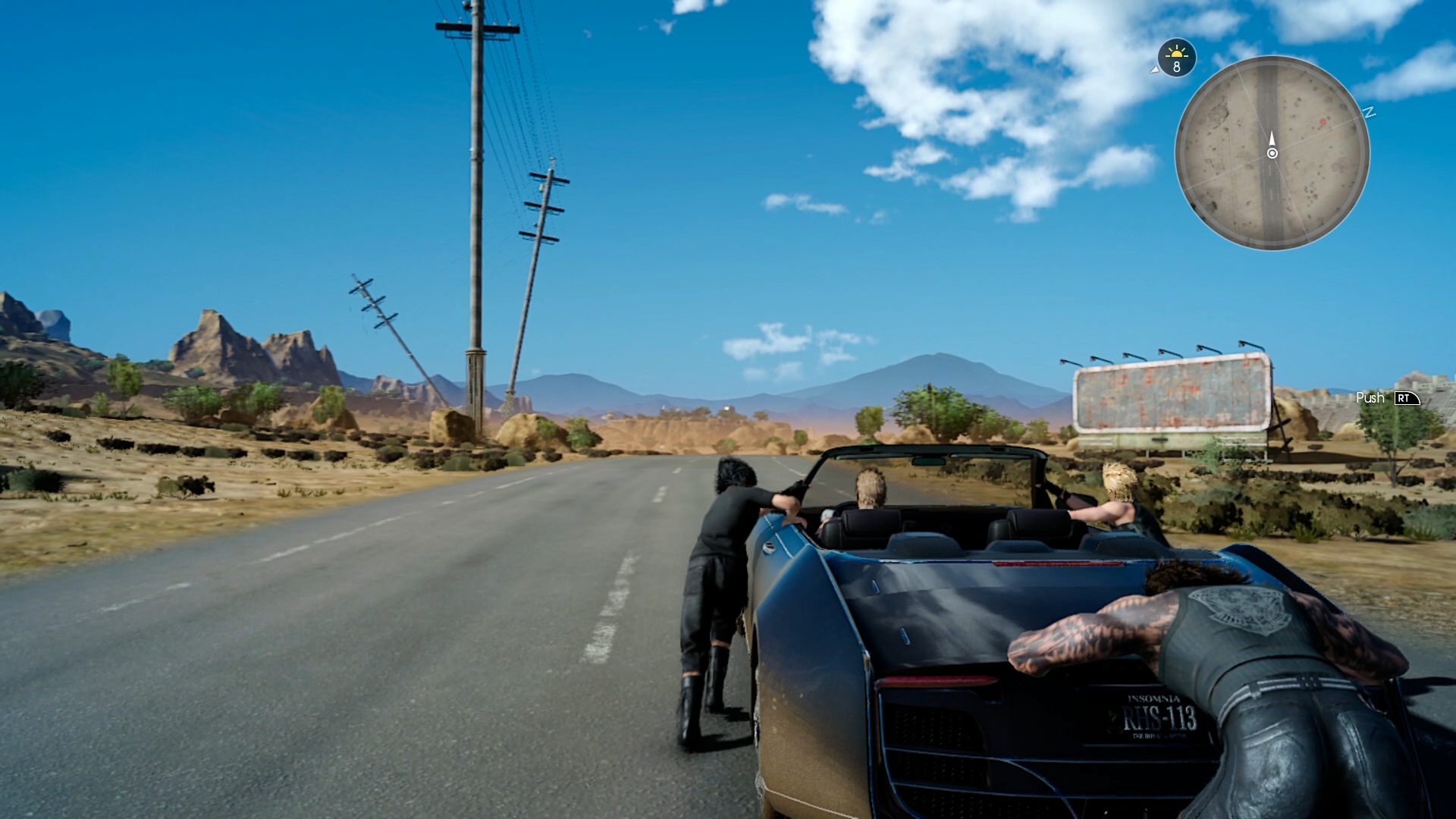
-
Final Fantasy XV Screenshots #3
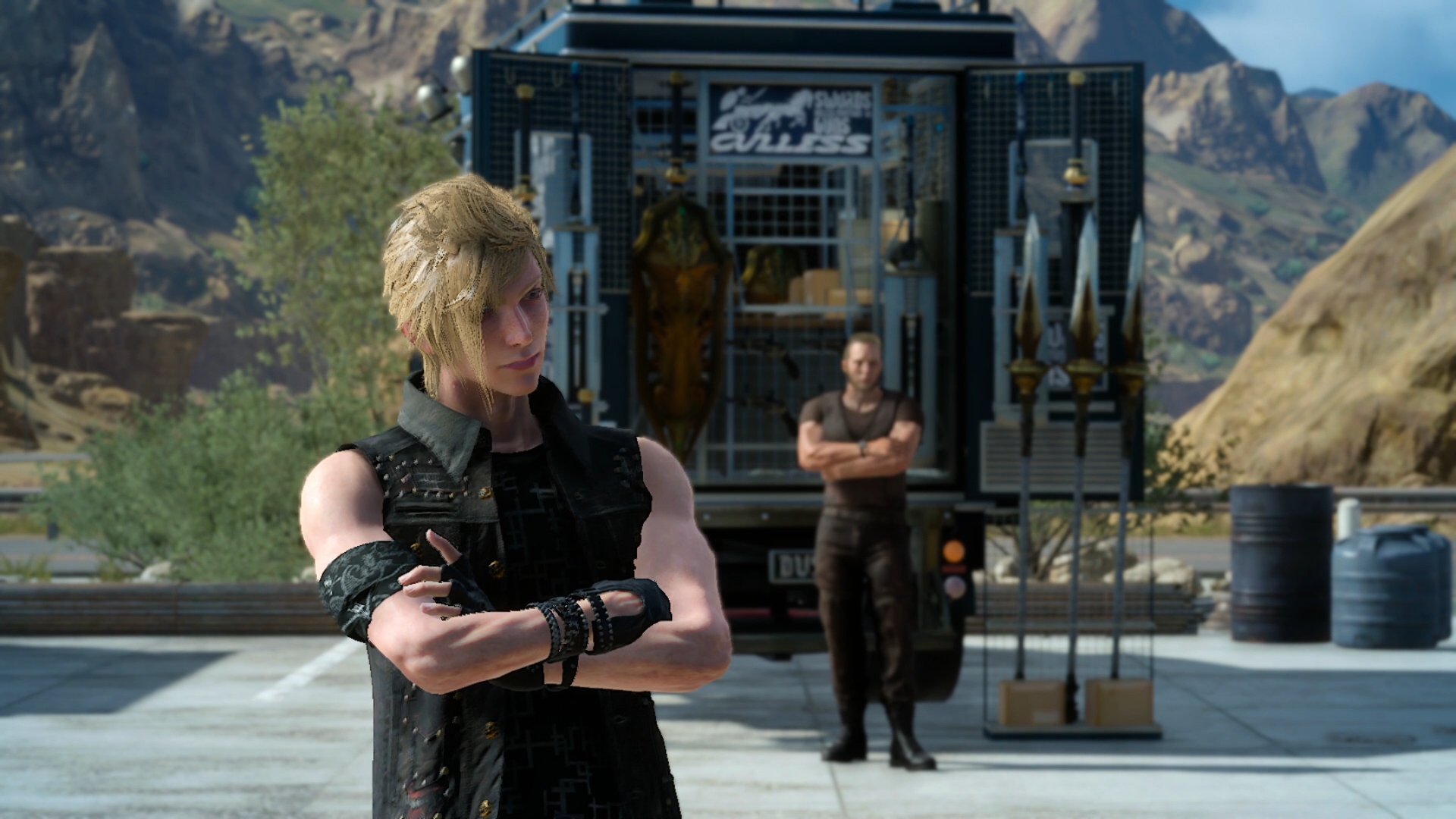
-
Final Fantasy XV Screenshots #4
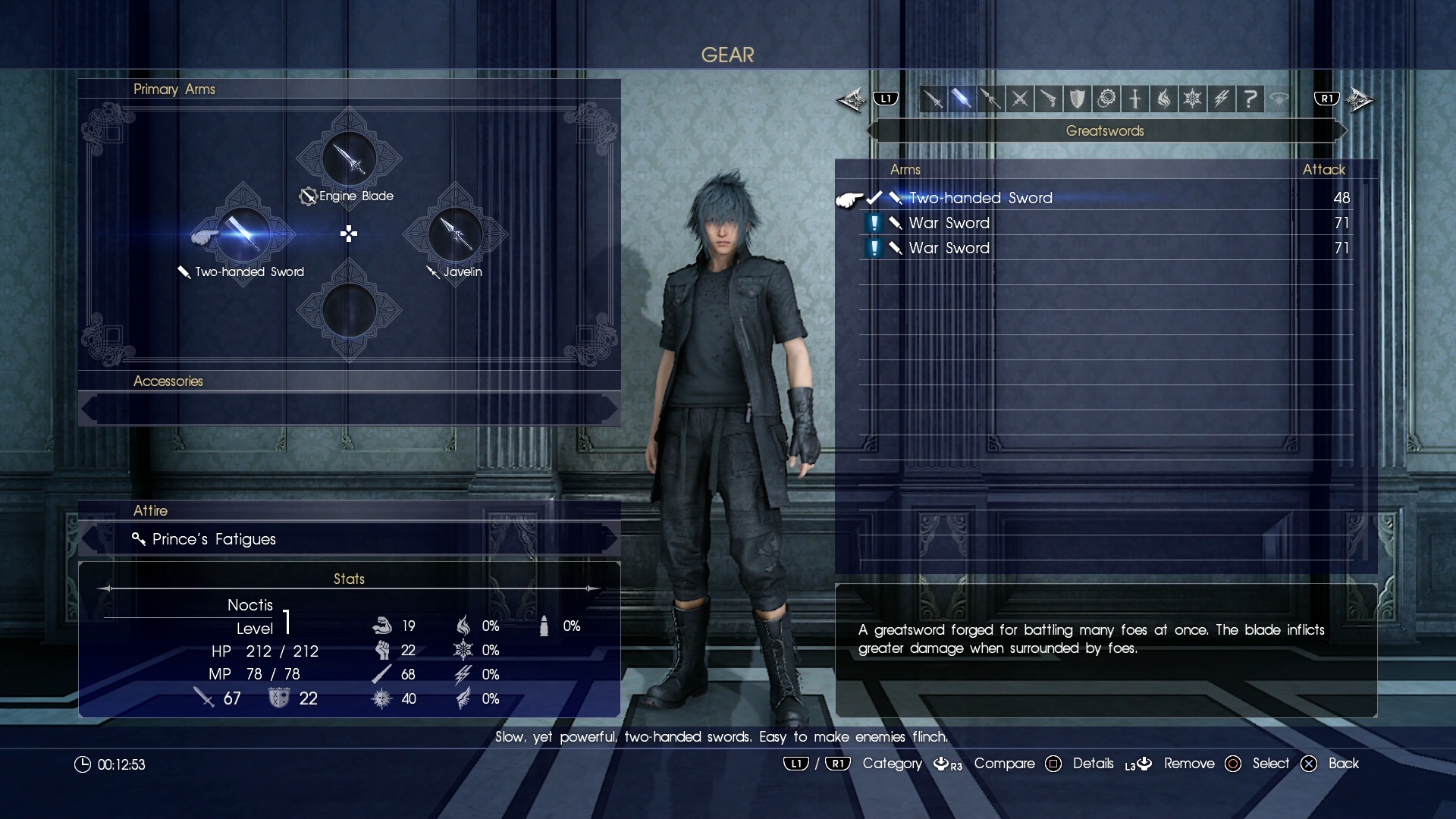
-
Final Fantasy XV Screenshots #5
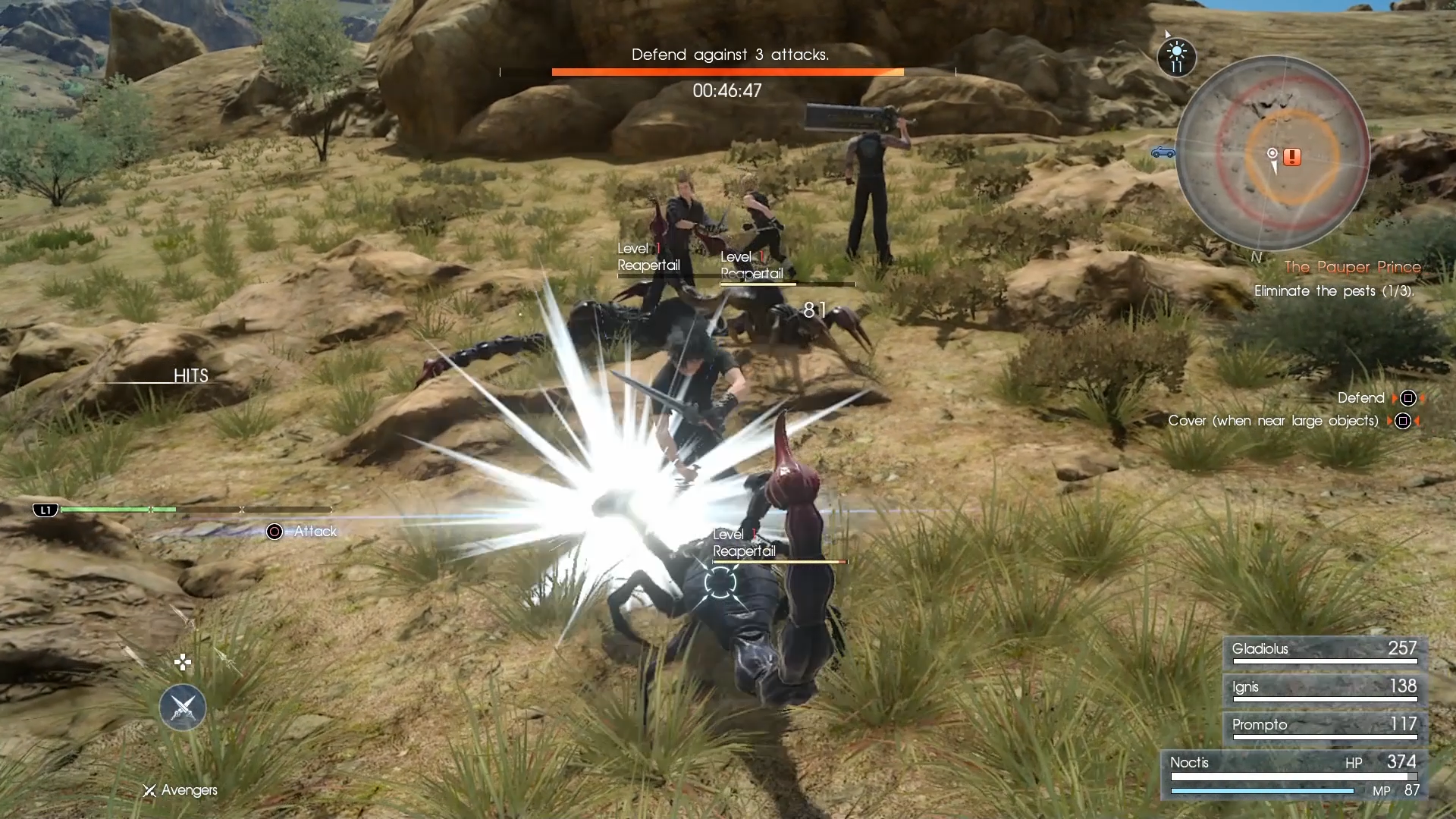
-
Final Fantasy XV Screenshots #6
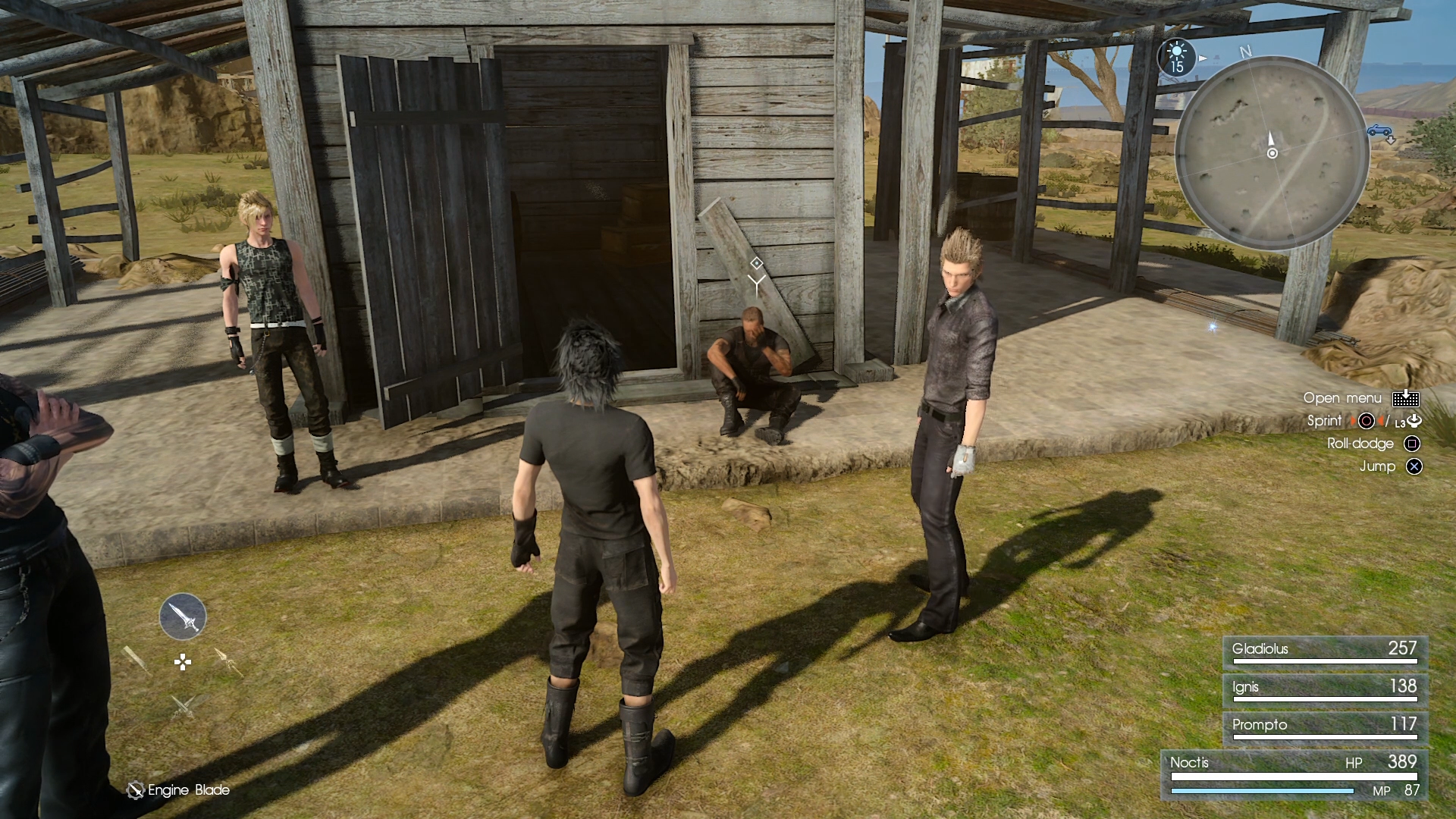
-
Final Fantasy XV Screenshots #7
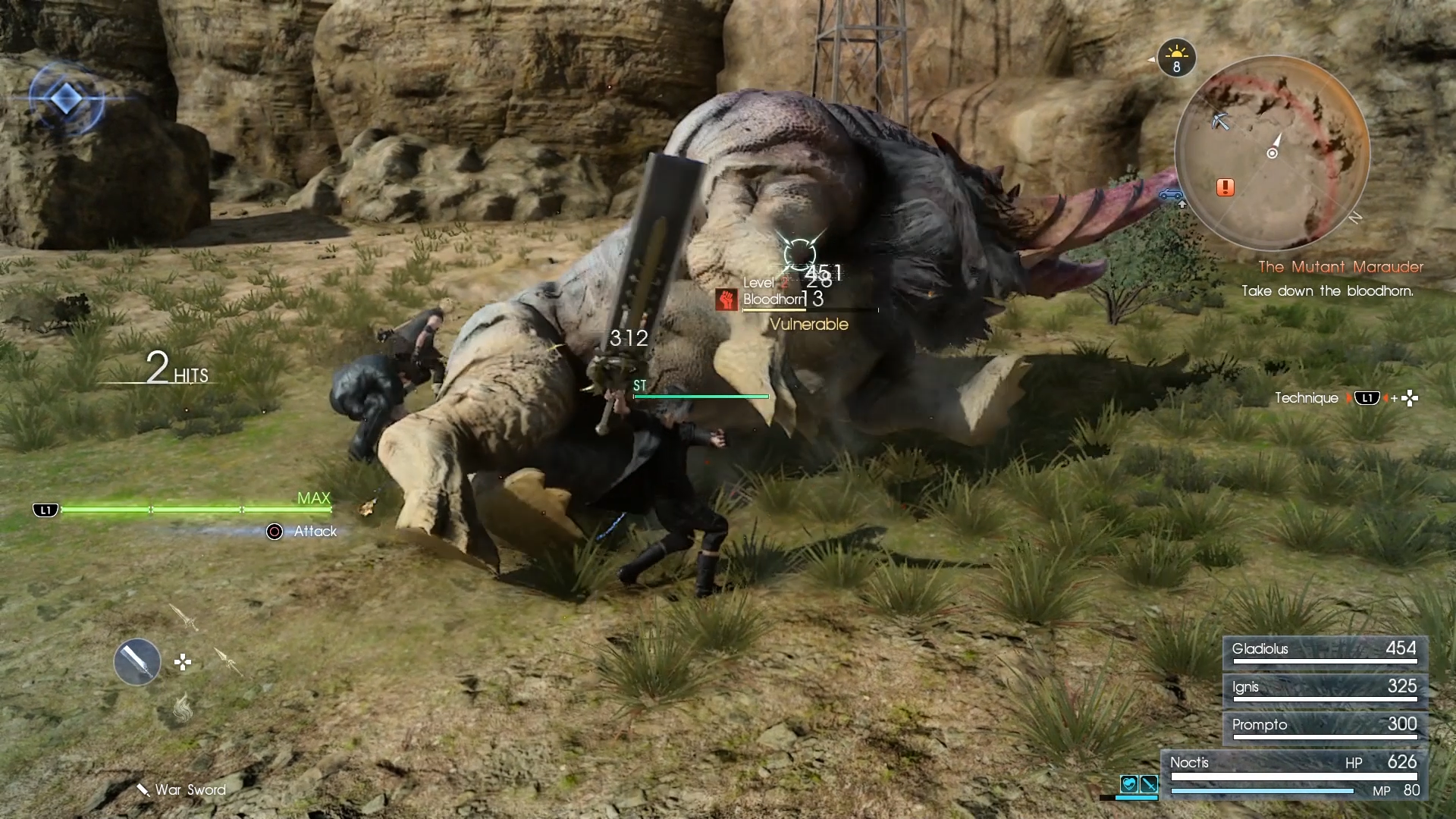
-
Final Fantasy XV Screenshots #8
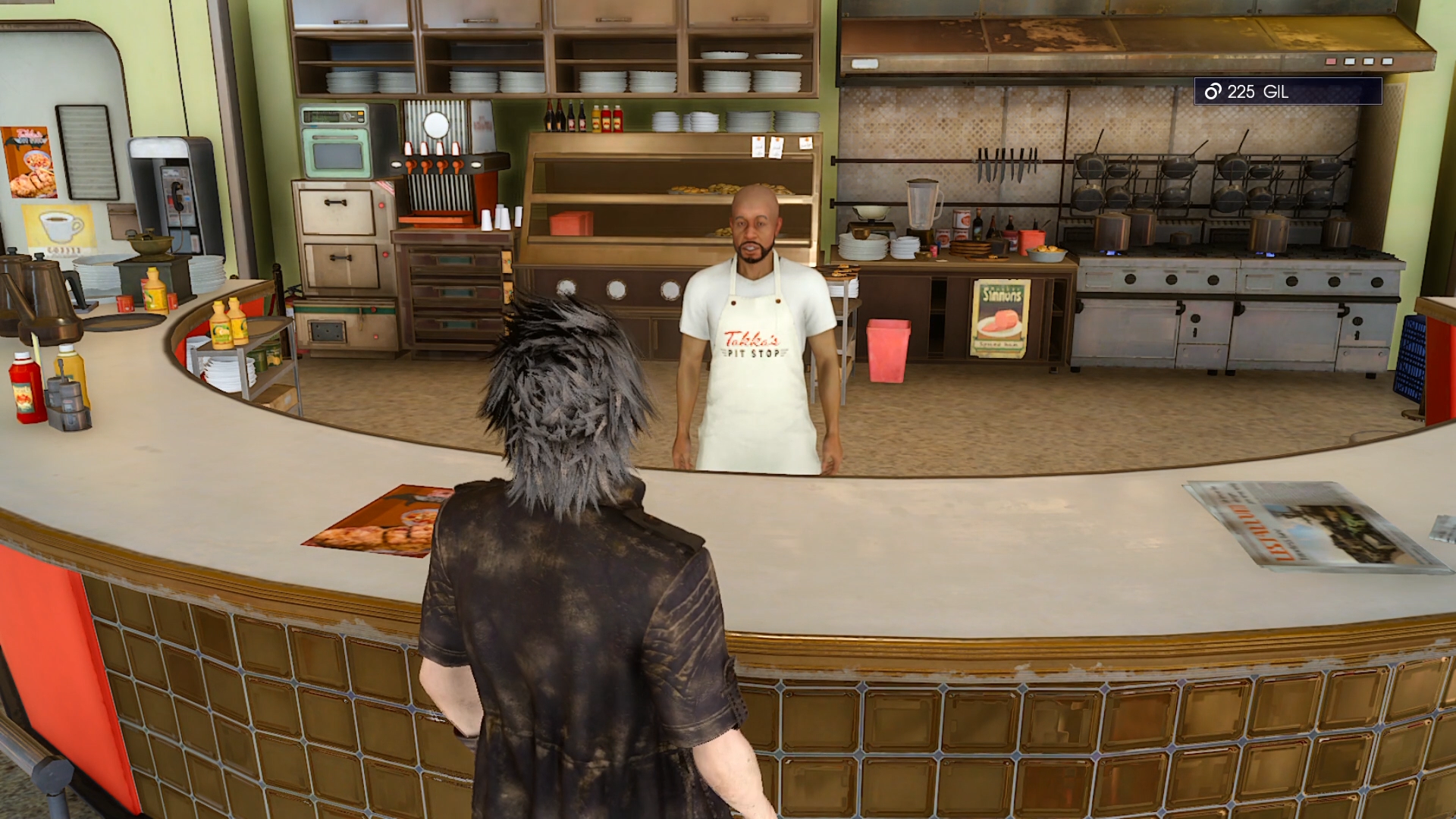
-
Final Fantasy XV Screenshots #9
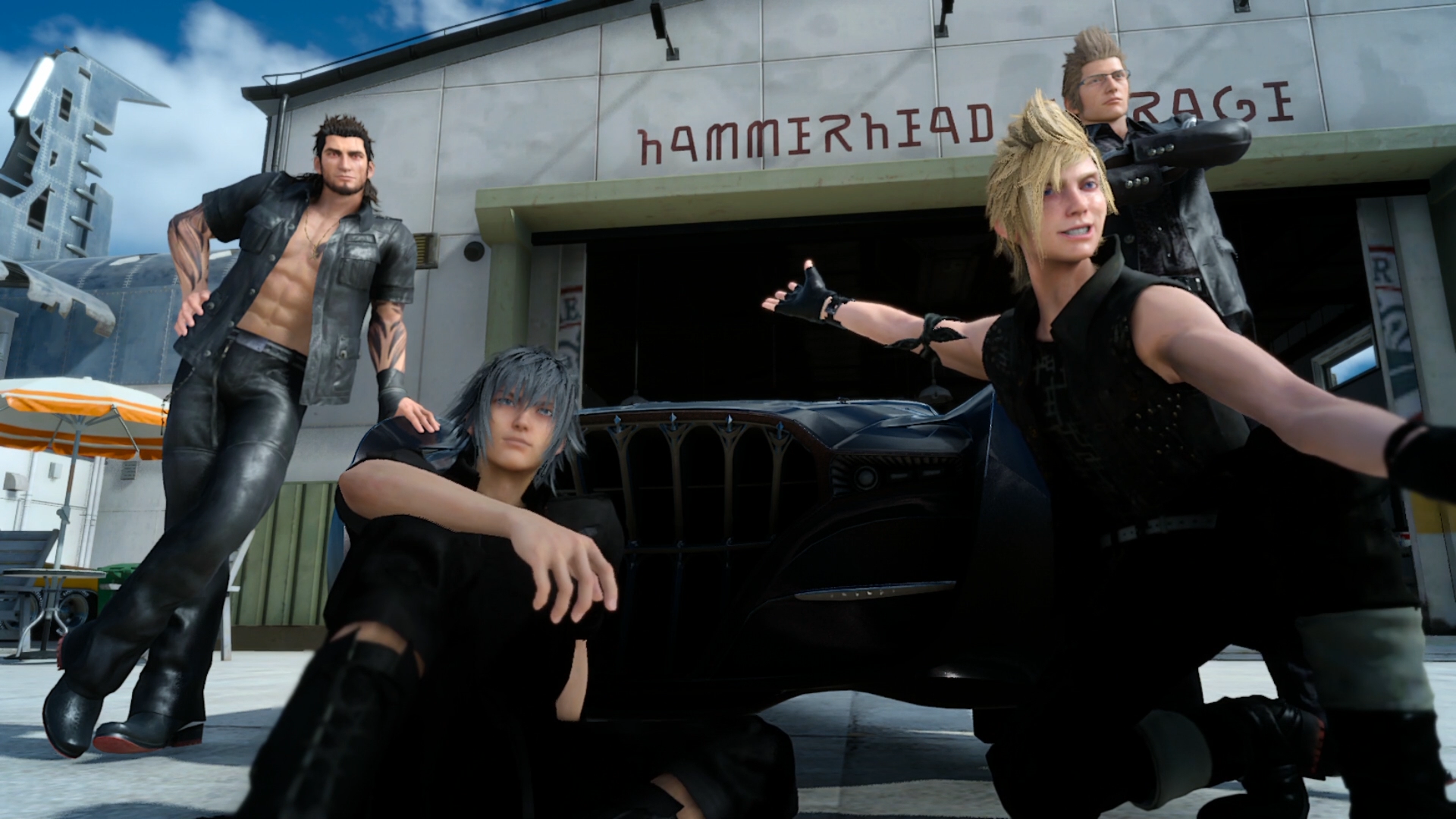
-
Final Fantasy XV Screenshots #10
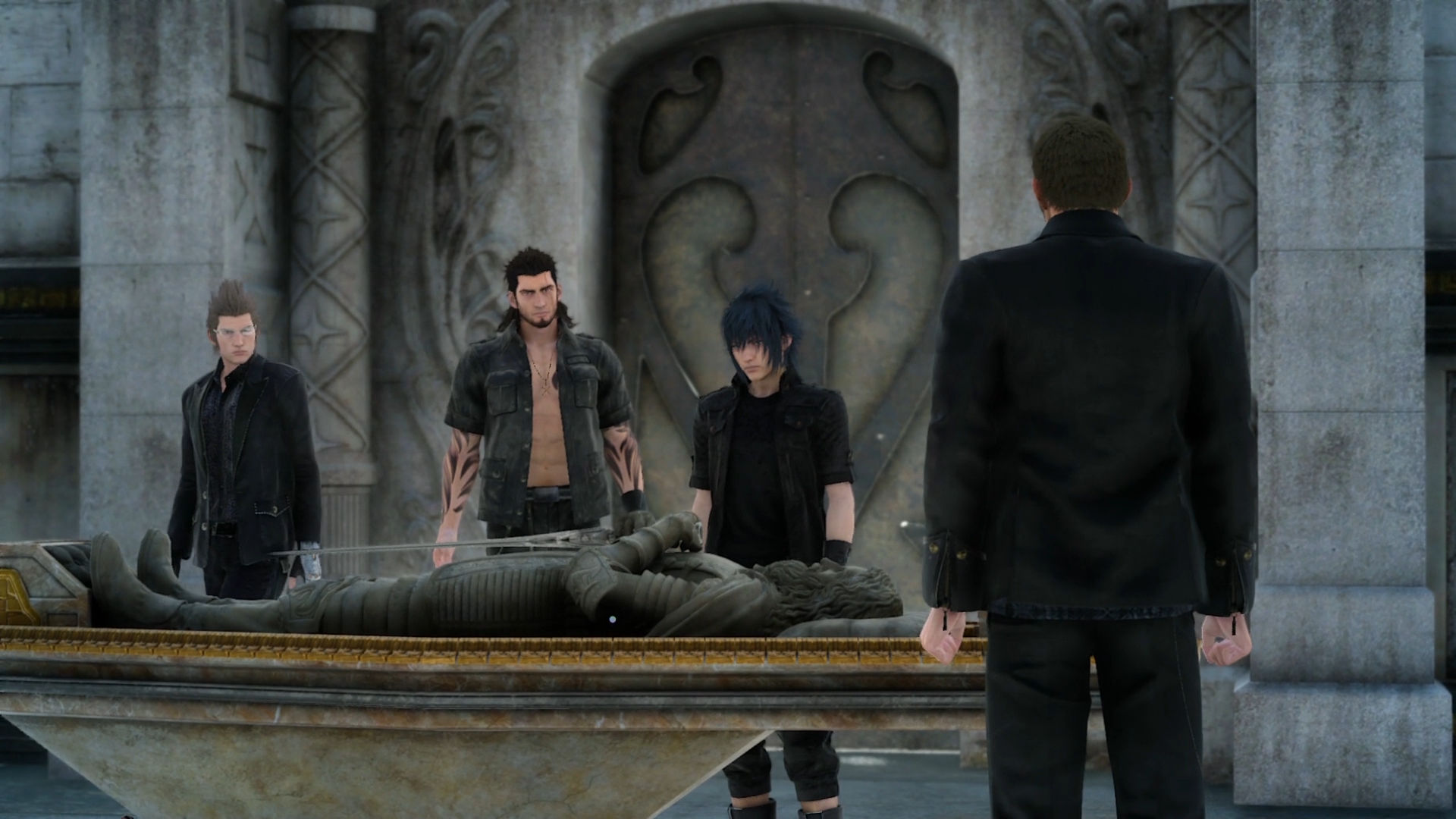
-
Final Fantasy XV Screenshots #11
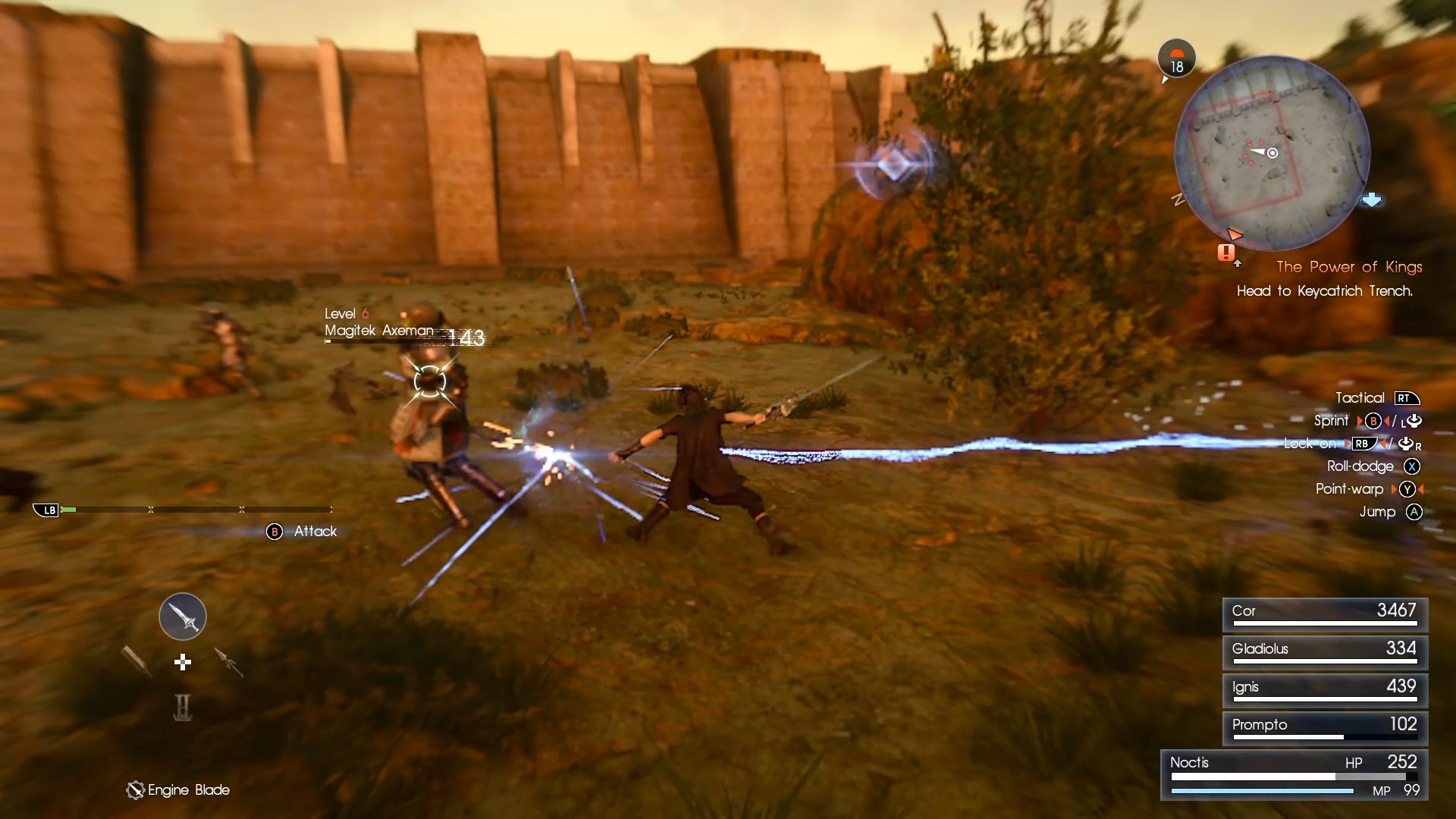
-
Final Fantasy XV Screenshots #12
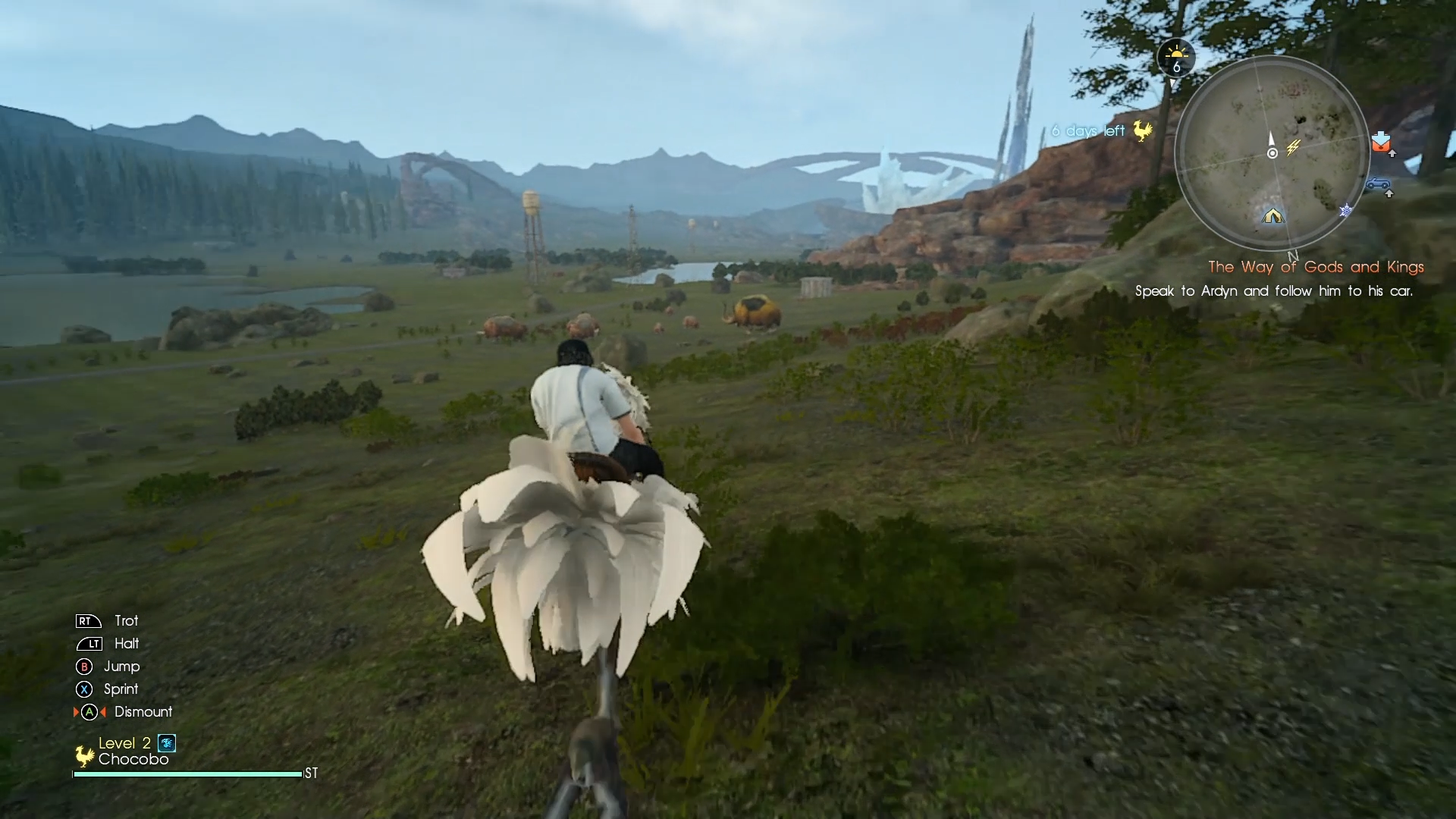
-
Final Fantasy XV Screenshots #13
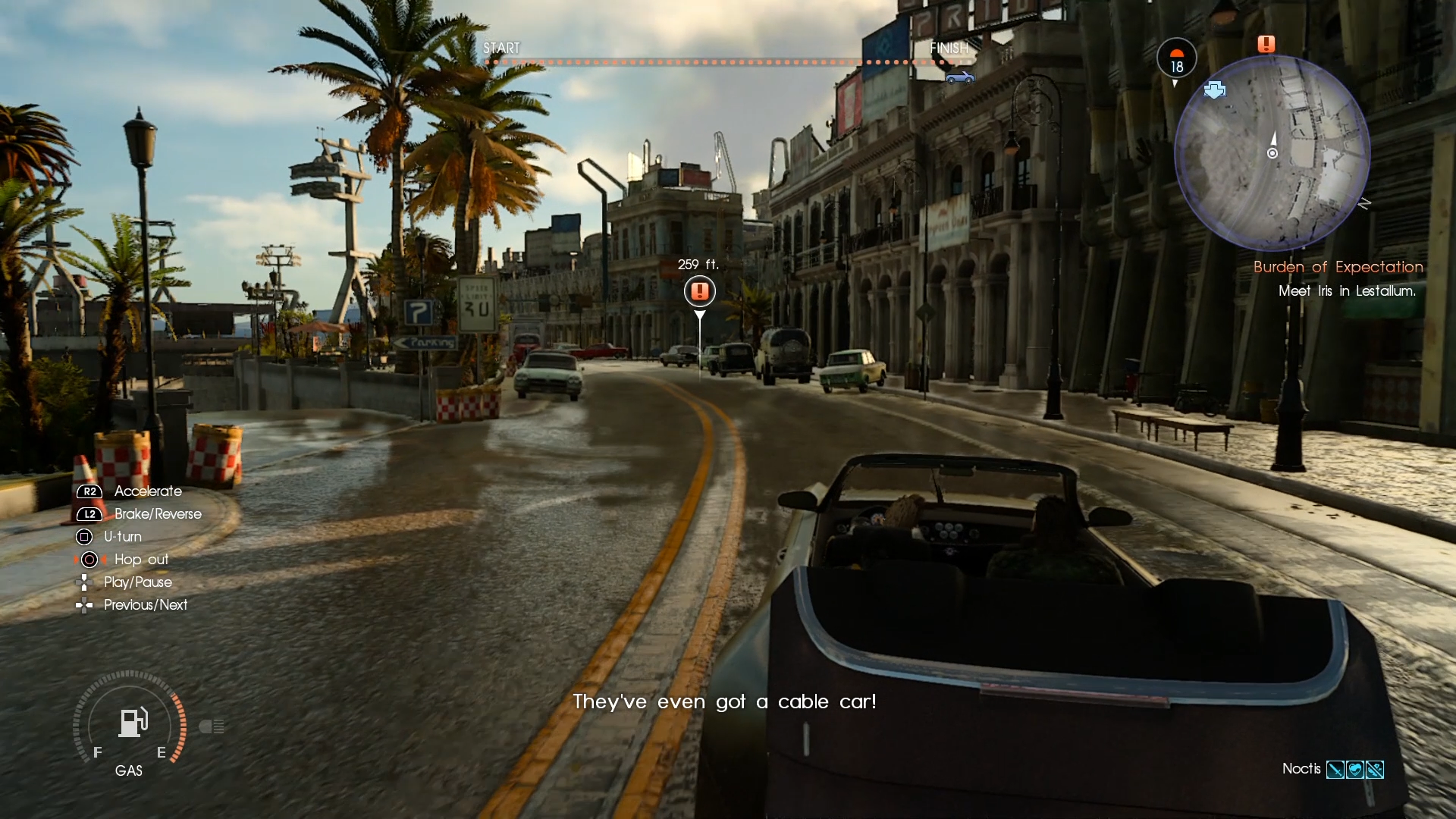
-
Final Fantasy XV Screenshots #14
